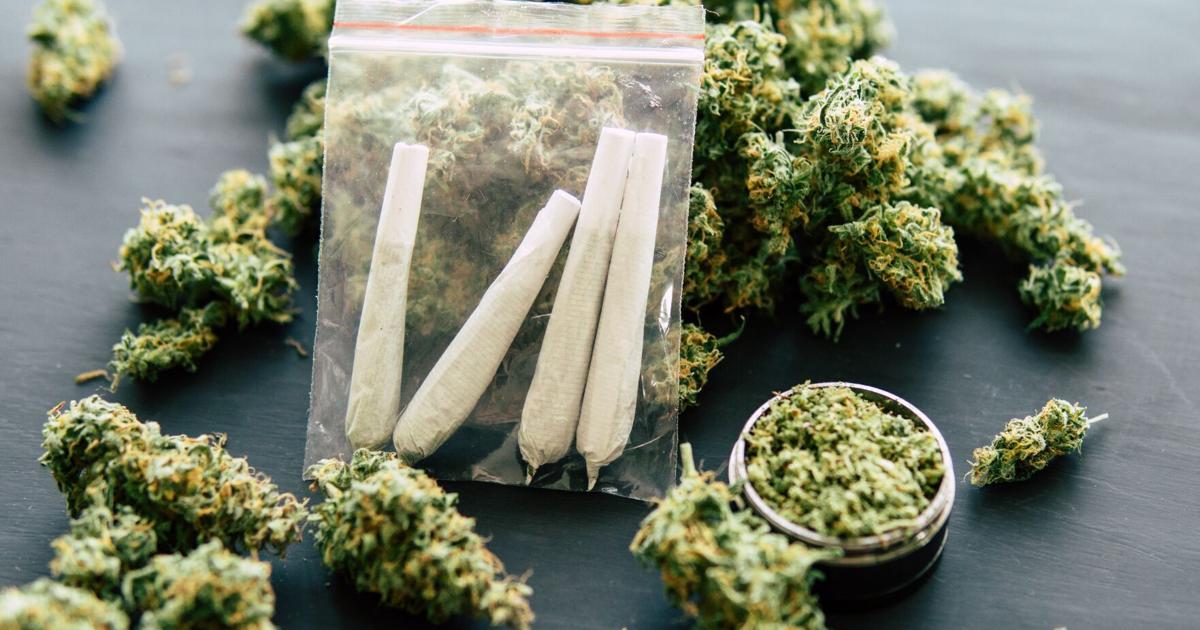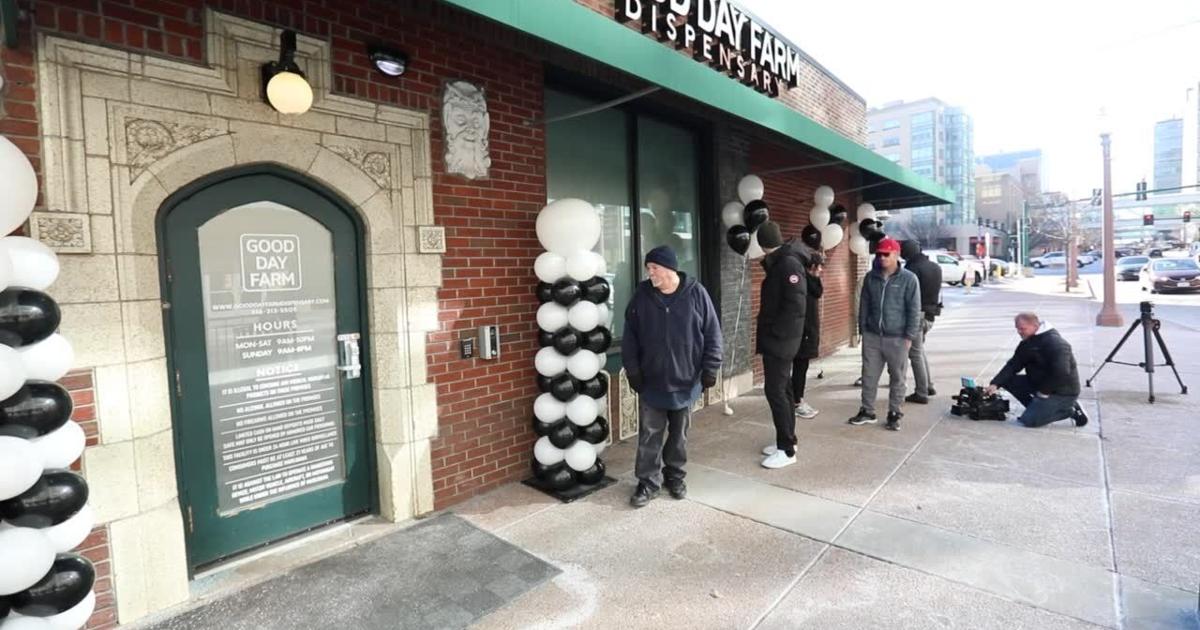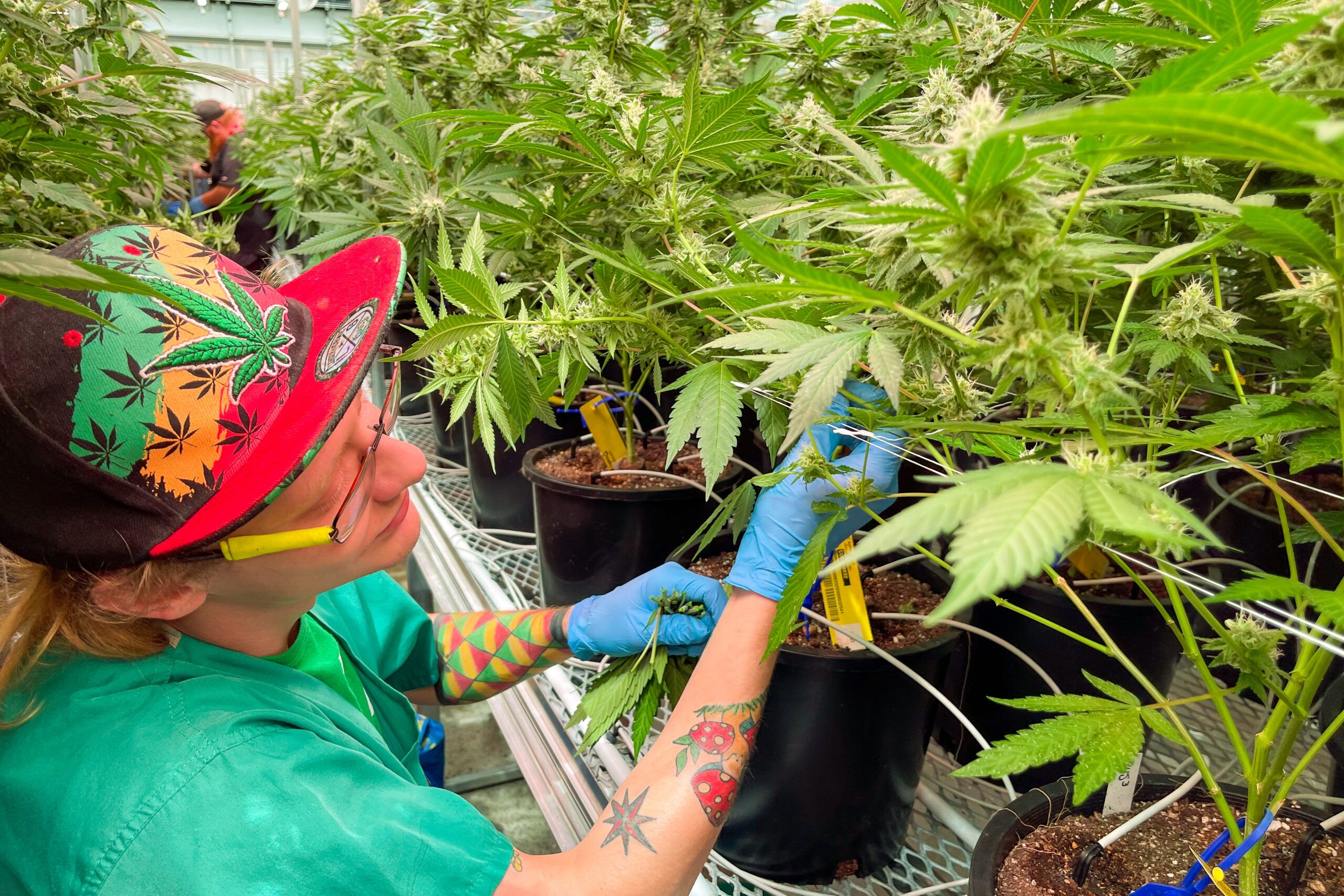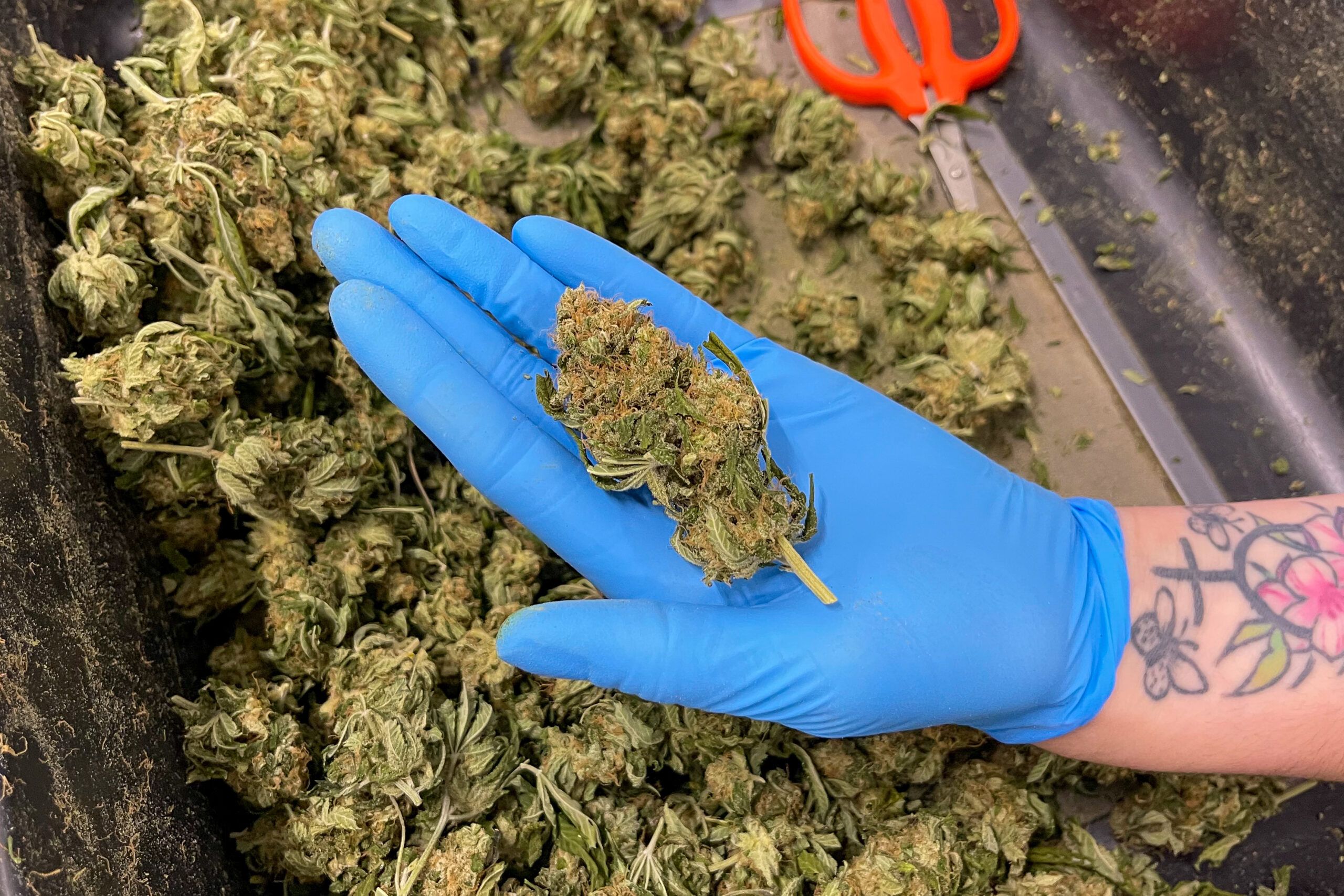"These newly instated regulations limit cannabis facilitators to brand and market their products with one color, as well as shifting from glass jars to mylar material, ultimately tarnishing any brand recognition that manufacturers and cultivators once had."
This ^^ is idiotic (particularly the mylar) and its my opinion that people wrap themselves up in the flag of "oh, but the children" to justify doing what they want to do in any case.
Not only are these regulations going to put a damper on what Missouri cannabis consumers know and love about the industry, but other recent adjustments have already started burning holes in customers’ pockets.
Cannabis consumers around the state already have or will soon start to see shifts when purchasing marijuana from licensed retailers.
Regulations from the Missouri Department of Health and Senior Services that have recently gone into effect restrict certain branding, marketing, labeling, and product production.
Not only are these regulations going to put a damper on what Missouri cannabis consumers know and love about the industry, but other recent adjustments have already started burning holes in customers’ pockets.
“They Killed the Creativity”
Last November, voters around the state heavily pushed for the legalization of recreational cannabis use, which was passed with ease, and led to a very smooth transition from strictly medical use to complete legality.
This is largely due to the medical marijuana infrastructure that was already set in stone, prior to the first recreational cannabis sale, with over 220 licensed dispensaries already established throughout Missouri.
“That was one of the reasons that we were able to make a fairly smooth transition from medical to adult use,” MoCannTrade spokesperson Jack Cardetti says. “A lot of that has worked really really well.”
MoCannTrade consists of various cannabis professionals around the state, serving as the lead voices behind successful, safe, and compliant cannabis use in the Missouri cannabis industry.
Following the passing of the alteration from medical to recreational use, the Missouri Department of Health and Senior Services proposed new rules regarding the way manufacturers and cultivators go about their packaging, labeling, branding, and production.
These newly instated regulations limit cannabis facilitators to brand and market their products with one color, as well as shifting from glass jars to mylar material, ultimately tarnishing any brand recognition that manufacturers and cultivators once had.
“It’s all in place as of today. That makes us, as a recreational market in the United States, the most restrictive for regulation, for licensing, for rules, for everything. It is the most restrictive state,” Franklin’s Stash House co-owner Michael Wilson says.
The reason why the DHSS put these regulations in place is to protect children from consuming any products that could potentially harm them. Yet, the department has not provided any statistics regarding the information, according to professionals around the line of business.
“They base all this on the idea of protecting children. I have children and I completely agree, but there’s been no transparency about how many children have actually gone and been admitted to the ER from a product that has been consumed from our industry,” Wilson.
“From a public health standpoint, from a public safety standpoint, I totally understand, but at the same time, it’s like,
do you have to go so crazy on us,” Josh Ordo, head of procurement at ReLeaf Resources Dispensary says.
When rules and regulations were first introduced, the cannabis industry was to be held to the same standards as alcohol and tobacco products sold throughout the state. But with the recent changes, it is clear to see that it is a double standard.
“We’re supposed to be held to the same standard as alcohol and tobacco, and it seems like we’re kind of getting away from that now in a sense,” Ordo says.
“We were not to be held to a different standard than alcohol and their advertising guidelines. Especially when companies have developed their branding around specific artwork, colors, and so forth, then that restricts a lot of that,” Kansas City Cannabis CEO Dan Nelson says. “Those companies lose their branding and their ability to create that self-image that a lot of people look far.”
The lack of creativity and a personal feel will put an extremely large damper on how manufacturers and cultivators, specifically smaller, local businesses, go about creating a brand that has a genuine and personal replication of the business themselves.
“I have no means to express to you who we are, why my product is better, it’s just got better drip than everybody else,” Wilson says. “I can’t do that anymore, there’s no such thing as drip anymore, there’s no such thing as creativity. They killed the creativity.”
“It’s creating more of a sterile environment. When you come in, you’re gonna look at black-and-white options where companies before relied upon creativity to stand alone and also to be recognized in the public… It definitely handcuffs any opportunities for those companies to succeed,” Nelson says.
Now, different cultivators and manufacturers are having to take unconventional measures and make drastic changes to how they operate their businesses.
“For the first time, licensees have to go to the department and essentially ask permission ahead of time, to get pre-approval for any new packaging,” Cardetti says.
While there is a large concern that creativity behind the brands that fuel the market is dying due to the regulations and guidelines, there are also worries that the process of gaining permission from the DHSS will halt the immense growth that the industry has seen over the last year.
“Any new product that a Missouri manufacturer or cultivator comes up with today, it’s gonna be months before customers ever see those at the market now, because of this sort-of forced delay that the department has put in place,” Cardetti says.
The DHSS is also issuing guidance letters in an attempt to enforce rules that are not set in place, a conniving attempt to impose even more restraint on those in the industry.
“When you do rule by guidance letters, there’s fewer accountability there for the department and they think that’s something that lawmakers are concerned about, and it’s something, quite frankly, the industry is concerned about as well,” Cardetti says.
“We expected those rules to look a lot like the medical marijuana rules, and in fact, they were a large departure,” he says.
Saying Goodbye to Prized Products
Along with the branding and labeling changes, certain products from those who provide the state with copious amounts of cannabis consumables are being thrown out the window: Including the fan-favorite cannabis-infused James’ Lemonade.
Moving forward, no currently existing products, such as James’ Lemonade, can be infused with THC for medical or recreational sale. For example, attempting to infuse a bottle of Gates Barbecue Sauce with THC would be restricted since it is an already established non-cannabis product.
Similar to the regulations regarding packaging processes, the DHSS states that child safety is the sole reason for banning certain products and placing restrictions on future cannabis-infused production, according to professionals around the industry.
Cannabis-infused James’ Lemonade was previously one of Franklin’s Stash House’s largest revenue streams, making up around 40% of its total revenue. But with the recent regulations enforced, they must bring the selling of the product to a halt.
“40% of my business up until these rules came out were from James’ Lemonade. Everybody loves James’ Lemonade, we’ve been selling it like crazy. And now imagine being an independent operator with a single license, I’m not a multimillionaire, I’m not a big conglomerate, these things hurt a Missouri operator like this,” Wilson says.
“We will adapt, we’re well-known for lots of other products, but I basically had my top-selling line completely killed because of regulation and directly targeted.”
There is now a fine line between what qualifies as a currently existing product that is not permitted to be infused with THC for medical and recreational sale.
“Well, there are certain brands that are making rice krispies on the market. Is that formulation the same as the Rice Krispy Treats we get in a box,” Ordo says. “Making a rice krispie is a recipe that’s as old as time. It’s very basic, it’s butter, marshmallows, and rice krispies, so it’s like where do you draw the line then at that point?”
As one of the few local cannabis manufacturers in Kansas City, and the state as a whole, Franklin’s Stash House is put at an extreme disadvantage, in comparison to large corporate producers.
“We do have out-of-state guys that are coming in with hundreds of millions of dollars, and buying up operators, and just playing the good old games of James Rockefeller,” Wilson says. “That’s the challenge. These laws hurt a local operator like Franklin’s and like James’ Lemonade way more than they’re going to hurt some out-of-state brand.”
“There wasn’t a problem to begin with. We didn’t have complaints about those types of products. The customers knew what they were buying, there was lots of good information on the label to make an informed decision when they purchase these products,” Cardetti says.
No License, No Issue
While regulations continue to affect the colossal amount of members in the cannabis market, those in the unregulated industry selling delta-8, delta-9, and THCA products will experience no changes.
Delta products are chemicals and substances found amongst normal THC products, simply lacking the THC compound, making the recreational sale of them completely legal, with a lack of regulation from the FDA.
“They’re not under subject of any rule or law, yet Missouri allows it. That’s the biggest frustration, I would say as a legitimate operator, is we’re feeling the effects as a legitimate industry,” Wilson says.
A major question that has been raised as a result of the regulations is if the children’s hospitalizations from consuming cannabis products come from licensed dispensaries, unlicensed smoke shops, or even home growers.
“Maybe it’s the unregulated stuff that they need to worry about. They’re trying to cite data about kids consuming products, well there’s also people who make their own gummies at home that make them look like gummy bears, and we can’t control that.”
While there is a lack of data and evidence regarding the specific products that children are getting hospitalized for, there is truly no way for the DHSS to identify where the cannabis commodities come from, creating frustration amongst licensed individuals.
Burning Holes in Pockets
Not only are branding, packaging, labeling, and product selection going to dampen the cannabis purchasing process that Missouri residents have grown accustomed to, but manipulative tax impositions are costing customers more than they may be aware of.
While cannabis consumers may be aware of the surge in total costs as they get to the checkout line of their favorite dispensaries, many are uncertain of why this has taken place.
Earlier this year, cities and counties across the state placed a proposition for increased taxation on recreational cannabis products on ballots, many of which were approved and went into effect on Oct. 1. The approval gave municipalities and counties the authority to charge a 3% tax increase, in addition to the initial sales tax and 6% tax that goes to the state.
The format for this was for a 3% tax increase for any marijuana purchase within city limits or a 3% increase for counties to charge when customers are outside of city limits. At the end of the day, customers were always going to see a 3% tax increase, but this is not how the approval has played out.
Counties and cities have been double-stacking their taxes, creating a total of a 6% tax increase, on top of the regular sales tax and 6% state tax, ultimately resulting in at least a 12% tax on any cannabis product sold.
Despite the fact that customers are currently paying more than they should legally be required, their funds are going to a good cause: Helping expunge records of those with non-violent cannabis charges.
“We were the first state by the vote of the people, went ahead and when we legalized marijuana, instituted automatic expunges, which means it’s up to the court system to go and expunge those records.”
Since the approval of this notion on the ballot last Nov., nearly 100,000 individuals across the state have had their non-violent cannabis charges expunged.
Yet, there is a fear that the increase in taxes across the state will ultimately encourage consumers to purchase their marijuana from the black market. “If you tax the sale of legal cannabis too much, all you’re doing is fueling the illicit market,” Cardetti says.
Just a couple of weeks after this approval went into effect, MoCannTrade filed a lawsuit against St. Louis County and the state of Missouri, claiming that the manipulative actions between the counties are a money grab and overall illegal.
“We fully expect that that will be a successful lawsuit, which will save Missouri cannabis customers about $3 million every month if successful,” Cardetti says.
“Power to the People”
While there is frustration amongst members of the cannabis market, they understand that the DHSS and the state as a whole are trying to legislate and operate a fairly new industry within our state.
“Me, as an operator providing you information here, I respect the fact that they have to make long-term policy decisions,” Wilson says. “Now I firmly disagree with a handful of them, but I mean 80 to 90 percent, I completely agree with.”
“We’ve been really impressed with how much legislators have engaged in these issues, they listen to the marijuana companies that are operating in their communities, and they are certainly talking with the department about what the rules really need to look like…,” Cardetti says.
“What we don’t want to see is half-empty shelves next Spring, what we don’t want to see is good Missouri-based companies not being able to get products to market because there’s an artificial delay at the Department of Health.”
Although cannabis professionals in the market find many of the newly imposed regulations frustrating and see them as intentional setbacks, they understand the struggles that come with regulating a freshly founded, billion-dollar business.
“At the end of the day, we gotta be fair under the fact that it’s not black or white in this industry. We all gotta have a little bit of empathy, like it’s gotta be really hard to manage a billion dollars worth of weed in your state and get it to the consumer at an affordable price,” Wilson says.
As Missouri cannabis consumers and professionals move forward, there is still much work to do in months to come. Professionals around the industry say that the cannabis consumer is the number one priority and should let their voices be heard.
“At the end of the day, when it comes to cannabis and something that may change the culture of cannabis, it’s all about power to the people,” Wilson says.
“The department doesn’t know what the consumers want unless they voice their opinions.”
“There are forms on the DHSS, there are phone numbers, there are emails that you can call and provide your opinion on, you can call and ask questions on,” he says.




